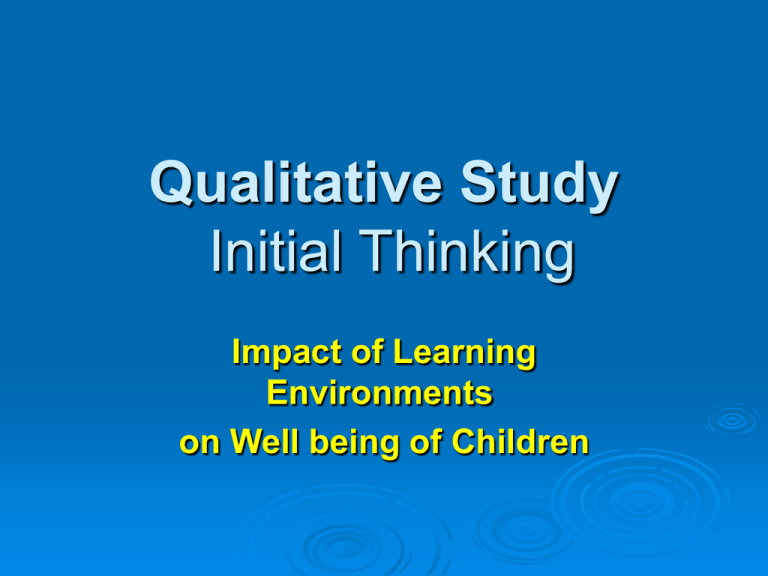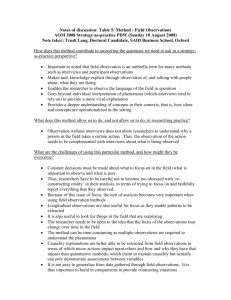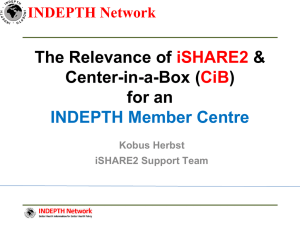Qualitative Study
advertisement

Qualitative Study Initial Thinking Impact of Learning Environments on Well being of Children Definition of well being UEF defines well being as the realization of the physical, emotional, mental, social and spiritual potential of human being Complex- dynamic- changing subjective Little research addressed child perspective of well being Objectives Provide maximum opportunity for us to learn what is on the hearts and minds of children in relation to the three learning environments. Refine our concept of well being through soliciting the views of children about well being, Refine our methodologies for accessing information about the impact of the learning environments on children' well being. Prioritize areas of well being that are most relevant to focus on in quantitative surveys taking into consideration different factors such as cultures, gender, age groups and perhaps with different sectors of society. Provide insights about the indicators of well being that will be integrated into the quantitative surveys. Target population Boys and girls of 15 and 16 years old who - Representing different types of schools (private & public sectors or general education and vocational schools - Represent as possible the different socioeconomic levels. Other suggestions are appreciated Methodology 12 Focus groups (size 8 students) in West Bank - 5 boys groups - 5 girl groups - 2 mixed groups of boys and girls 45 Individual indepth interviews with students -5 students to be selected from 3 types of schools From 3 regions in the West Bank. Interviewers Two trained young interviewers per interview will conduct the exercise with groups and individuals interviews. One conducts and facilitate and conduct the interview and the other records, observes and collect responses. A third person will be video and tape recording the interviews. Tape and video recording will be done on few Indepth group and individual interviews after obtaining children and their parents consent Components of the Indepth Interviews Mapping components of the learning environment. Exploring views and feelings of students perception of the impact of each component on their well being (positive or negative). We could possibly use emoticons (images) that reflect their feelingsHow, why such feelings may impact them. What changes they would like to see that promote their well being Their views on the strengths and limitations of the methodology Tools of documenting students’ responses Tape recording Video recording Drawing maps Observations Outcome and limitations Output: To draw a new school environment with aspects that can have better impact their overall well being. Issues What other tools/techniques you suggest that can help children express their views freely, safely and adequately? What level of open ended questions we need to use in soliciting the views of children (broad versus more specific)? How best we can document the views of children? What shall be the focus of indepth interviews (on how the environment impact children well being or what impact they have on children? Can children be involved as researchers as this stage (e.g. how can we convince children that what they say won’t be used against them? How can we deal with the ethical aspects of the exercise? Individual versus group indepth interviews?











